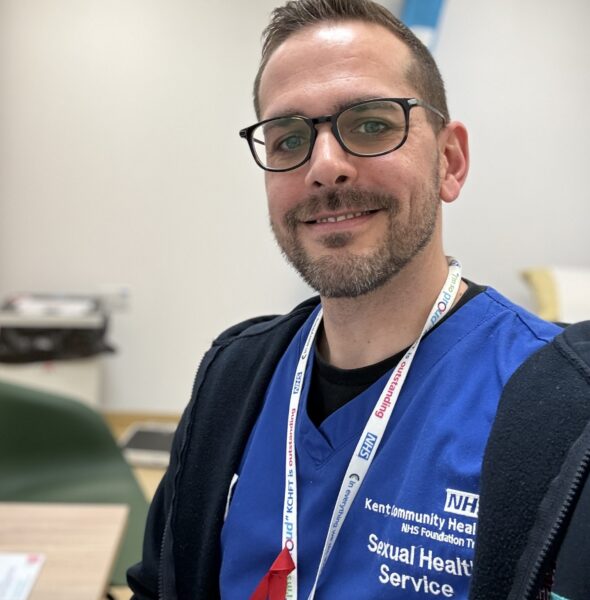Specialist care in our community: Meet the SAS Doctors

SAS Doctors (Speciality and Specialist Doctors) are experienced doctors that have taken a different route to develop in their careers.
They often have found a unique area of medicine not covered by a traditional training route, or they may be having a pause from training or be using experience gained from other healthcare systems.
SAS doctors work autonomously, take on leadership roles and importantly continue to develop within their roles. The latest GMC survey shows that SAS posts make up 30 percent of the doctor workforce and is a growing section of the workforce.
Amy Heskett, an SAS doctor in Kent Community Health NHS Foundation Trust, explains: “Many SAS doctors are in based in community teams, providing care closer to patients' homes and needs.
"I feel very lucky to be with a trust that has used the new SAS doctor contracts to allow this group to develop their careers and take up leadership roles.”
Here, to mark SAS Week (14 to 18 October 2024), we caught up with some KCHFT SAS doctors, to find out more.
‘Being a speciality doctor allowed me to work autonomously’
Rumbidzai Chineka (pictured above right) is a speciality doctor in community geriatrics at Tonbridge Cottage Hospital.
She said: “I am an international medical graduate, and after working in an acute hospital setting, I decided to take on a role in the community as a speciality doctor. This allowed me to work autonomously using my experience in general medicine as well as the experience I gained as a medical registrar in the NHS.
“In the next year, I hope to develop my skills and experience in palliative medicine, which I’ve grown interested in since joining KCHFT and working in community geriatrics.”
‘Knowing you can help patients at home is a great feeling’

Dr. Usman Manigi joined KCHFT recently following a wealth of experience in geriatrics medicine.
He said: “We are a multi-specialist team involved in seeing patients at home and avoiding hospital admissions, and this has been surreal so far.
"Knowing you can do so much for patients in the comfort of their homes is a great feeling for myself, the patients, and their relatives.
“I became an SAS doctor by taking on this role and working in the community.
"Working as an SAS doctor in this capacity has given me the exposure to develop myself as a community doctor offering services to the elderly at their homes. My career goal in the foreseeable future is to grow and become a community geriatrician."
‘It has offered me the opportunity to shape my career’

Emily Baldwin recently joined KCHFT as a speciality doctor after completing her foundation year.
She said: “I am really enjoying the role so far. I became a speciality doctor straight after completing my foundation year rotations and, compared to formal training, it has offered me the opportunity to shape my career in a way that most suits my skills and interests.
As I continue, I’m looking forward to further developing my knowledge and skills working with patients with frailty, as well as getting involved in educational opportunities to help support the development of colleagues and students.”
‘I enjoy a good work-life balance’

Dr. Jay Solai has worked for our east Kent frailty virtual ward since April 2023.
He said: “I mostly see acutely unwell patients and those under proactive frailty and see patients in the community hospital.
"I heard about being an SAS doctor by shadowing for a few days and speaking to as many people as I could about the job responsibilities and how the team works.
"I enjoy having a good work-life balance in this role.”
‘I hope more doctors consider the SAS pathway for career advancement’

Vineeth Thilakan worked 12 years in different parts of the NHS before becoming an SAS.
He said: “After working in general practice, public health, and palliative care, I feel the SAS community geriatrician role at KCHFT is a perfect fit for me.
"There are various opportunities for career progression without needing to enter the training pathway.
I hope more doctors consider the SAS pathway for career advancement, as the specialty training routes are becoming increasingly saturated, leading to frustration among many young doctors eager to progress in their careers.”
Listen to Speciality and Specialist, special edition podcast.




